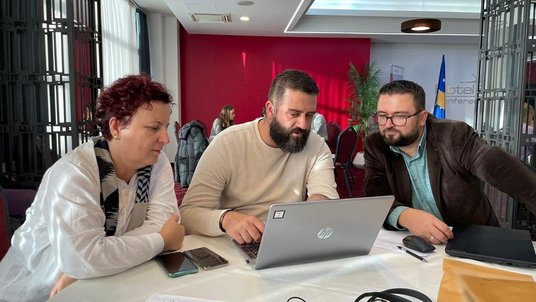
Republic of Kosovo

- Capital: Pristina / Prishtina
- Area: 10,877 km²
- Population: approx. 1.8 million
- Official languages: Albanian and Serbian, depending on the settlement areas; in some areas also Turkish and Bosnian
Pristina / Prishtina
In close cooperation with Kosovo’s Ministry of Education the OeAD implements projects in the area of vocational education and training. The projects are coordinated by the OeAD's regional office in Tirana.
Key focuses:
- Vocational education and training
- Quality development: focus on cooperation between schools and businesses
Example:
Objective: To increase the quality of in-company learning in Albania, Kosovo and North Macedonia.
Duration: 2022-2024
Direct target group in Kosovo: Approx. 60 business liaison officers, headmasters/headmistresses and teachers from approx. 60 schools of vocational education, approx.40 companies.
Indirect target group: Approx. 35,500 pupils from schools of vocational education
Background:
Improving the quality of vocational education and training by strengthening different formats of workplace learning is a reform priority of the Kosovar Ministry of Education. “Business liaison officers” at schools of vocational education are the interfaces with businesses, they are responsible for communication and cooperation with companies, especially with regard to the organisation of different formats of workplace learning.
The aim of the project is to strengthen vocational education and training providers as competent partners of the private sector. The focus is on increasing the quality of in-company learning by introducing effective processes in the organisation of different formats of in-company learning and corresponding quality assurance measures.
Results:
- Intensive support and coaching of 10 pilot schools in the introduction of effective cooperation processes with companies in the organisation of workplace learning.
- Mapping of possible business cooperation partners for the 10 pilot schools.
- Thematic training of business liaison officers.
- Awareness-raising activities for companies for the relevance of workplace learning.
- Establishment of a national “learning community” for the continuous professional development of business liaison officers at all schools of vocational education to support them in fulfilling their role as an interface with the private sector.
- Introduction of quality assurance and quality development measures that support the effectiveness and efficiency of the business liaison officer function, especially in the organisation of work-based learning.

